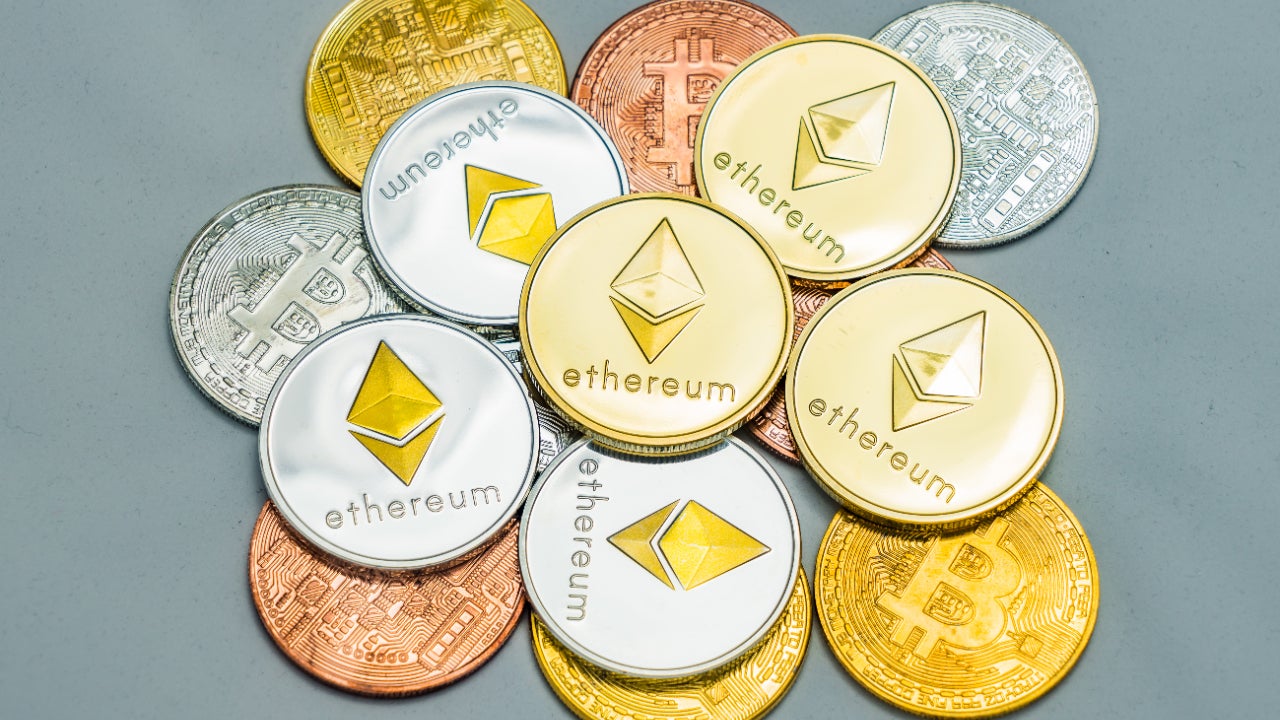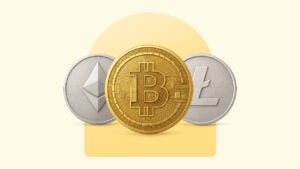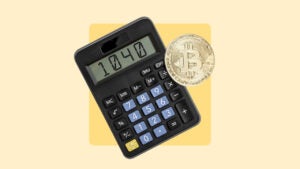Best online brokers for buying and selling cryptocurrency

Cryptocurrencies have been on quite the ride since being introduced, with some early investors seeing sizable gains, while those who bought at the peak are yet to fully recover from their losses. The digital coins have sparked much debate in the investment industry about their investment merits and viability, with legendary investors such as Warren Buffett saying cryptocurrencies are essentially worthless.
Recent years have seen a wave of both positive and negative news for the crypto industry. Crypto exchange FTX collapsed and top executives were charged with crimes, while other exchanges, including Binance and Coinbase, faced charges from the Securities and Exchange Commission. Still, the SEC approved several spot Bitcoin ETFs in early 2024, giving traders a simple way to buy and sell the largest cryptocurrency in the world.
While some traders like to own the currency directly, others turn to the futures market. Futures may be an even more attractive way to play the volatility of digital currencies such as Bitcoin, because they allow traders to use leverage to magnify their gains (but also magnify losses). But futures involve a lot more risk in exchange for that potentially higher reward.
Where you can buy and sell cryptocurrencies
- Traditional brokers
-
Brokers typically don’t offer direct trading in Bitcoin, only futures, but you will have access to a wide selection of other securities and can often buy Bitcoin ETFs commission-free.
- Crypto exchanges
-
Specialized crypto exchanges offer the widest array of cryptocurrencies beyond Bitcoin and the other most popular coins. You’ll also be able to own the currencies directly.
Here are the best brokers for cryptocurrency trading, including traditional online brokers, as well as specialized cryptocurrency exchanges. You might also want to check out which brokers offer the best bonuses for opening an account to determine where you can get a little extra.
Overview: Best brokers for cryptocurrency trading
Robinhood
Robinhood is a great option for buying cryptocurrency directly. You’ll also get to take advantage of Robinhood’s wildly popular trading commissions: $0 per trade, or commission-free, though you’ll still be paying a built-in spread markup on any trades. And if you’re into more than just cryptocurrency, you can stick around for stock and ETF trades for the same low price. Robinhood’s slick app makes trading so easy, though those looking for a full-featured trading experience will be disappointed.
- Commission: $0, but built-in spread markup
- Account minimum: $0
Interactive Brokers
Interactive Brokers lets you trade a handful of cryptocurrencies through Paxos Trust Company and Zero Hash, including Bitcoin, Ethereum and Solana, for one of the lowest commissions in the market. Plus, IB allows you to buy Bitcoin and Ethereum futures rather than owning the currencies directly. And in this broker’s case, you can buy futures on the Chicago Mercantile Exchange, including Bitcoin, Ethereum and Solana contracts. In addition, Interactive Brokers brings its full suite of investment offerings, so you can buy almost anything that trades on an exchange.
- Commission: 0.12-0.18 percent of trade value; futures commissions vary
- Account minimum: $0
Webull
Though Webull may be less known than its rival commission-free trading app Robinhood, it provides investors with a solid offering that includes cryptocurrency trading. While you won’t pay commissions on crypto trades (or stocks and ETFs), Webull does charge a spread markup of 100 basis points (1 percent of the price) on either side of a trade. Several cryptocurrencies are available for trading, including Bitcoin, Ethereum and Dogecoin. Charting tools and an impressive mobile app make Webull a broker worth considering.
- Commission: $0, but built-in spread markup of 1 percent
- Account minimum: $1 to trade crypto
Binance.US
Binance is a specialized trading platform that allows you to buy and sell digital currencies, including the largest such as Bitcoin and Ethereum, but also hundreds of other much smaller coins, too. In total, you’ll have access to more than 300 cryptocurrencies. The commission structure at Binance is low and only gets cheaper the more you trade. Trading fees start at 0.57 percent of your trade value (i.e., $57 for every $10,000 traded) and fall from there, depending on your trading volume over the prior 30 days. However, Bitcoin and Ethereum trading are free here.
Binance’s finances came under scrutiny in 2022 after the collapse of FTX. The accounting firm used by Binance to verify its reserves paused its work for all crypto clients and the Securities and Exchange Commission (SEC) said investors should be wary of crypto firm audits. None of the big four accounting firms are willing to work with Binance, according to the Wall Street Journal.
- Commission: 0.57 percent of the transaction value or less, while Bitcoin and Ethereum trading are free
- Account minimum: $0
Coinbase
Coinbase is a specialized cryptocurrency-focused platform that allows you to trade digital currencies directly, including Bitcoin, Ethereum, Solana and Tether. In total, you’ll have access to more than 200 cryptocurrencies. You’ll also be able to store your coins in a vault with time-delayed withdrawals for additional protection. The exchange’s commission structure is steep. It charges a spread markup of about 0.5 percent and adds a transaction fee depending on the size of the transaction and the funding source, though its Advanced Trade platform does not charge a spread.
The SEC sued Coinbase in June 2023, alleging it had illegally operated as an exchange, broker-dealer and clearing agency, and offered and sold unregistered securities. The lawsuit said Coinbase knowingly violated securities laws that are designed to protect investors. In early 2025, the SEC dismissed the case against Coinbase.
- Commission: Fees start at 0.6 percent on Advanced Trade
- Account minimum: $0
Kraken
Kraken is a cryptocurrency exchange that allows you to trade in more than 200 different digital currencies such as Bitcoin and Ethereum, as well as emerging ones, such as Cardano and Solana. Using the Kraken Pro tier the initial trading fee ranges from 0.25 percent to 0.40 percent and then declines quickly from there based on your 30-day trading volume. Kraken is not available to residents of Maine, New York and Washington state.
- Commission: At Kraken Pro, fees start at 0.40 percent
- Account minimum: $1
Charles Schwab
Charles Schwab is routinely one of Bankrate’s picks for top broker, and this investor-friendly company offers trading in Bitcoin, Ethereum and Solana futures. Schwab also has no account minimum, but any futures contracts you trade will require some minimum margin to hold them open. Schwab offers an attractive commission of $2.25 per contract, and if you’re able to bring big money to the table, you’ll receive a welcome bonus, too.
- Commission: $2.25 per contract
- Account minimum: $0, futures margin depends on contract
Tastytrade
Tastytrade is a relatively newer player to the brokerage world, and it offers some attractive pricing on cryptocurrency trades, which are enabled by partner Zero Hash. Tastytrade does not charge a commission but does include a built-in markup of 0.35 percent on each trade. Tastytrade offers 23 crypto coins, as of last count, including Bitcoin, Ethereum and Solana. You can also purchase crypto futures at $1.25 per contract on the open and close.
- Commission: No commission, but 0.50-0.75 percent built-in markup. Futures contracts at $1.25
- Account minimum: $0
Cryptocurrency FAQs
Bottom line
Whenever you’re selecting a broker, it’s important to consider all of your needs. And for new traders in cryptocurrency, you’ll want to figure out whether you want to own the virtual currency directly or whether you want to trade futures, which offer higher reward, but also higher risk. If you’re looking to get started trading cryptocurrency, here are the key things you need to know.
You’ll also need to consider whether you want to trade more than Bitcoin, which is what the majority of traditional brokers restrict you to. If not, you may want to turn to a cryptocurrency exchange, since they offer more choice of tradable cryptocurrencies.
Why we ask for feedback Your feedback helps us improve our content and services. It takes less than a minute to complete.
Your responses are anonymous and will only be used for improving our website.










